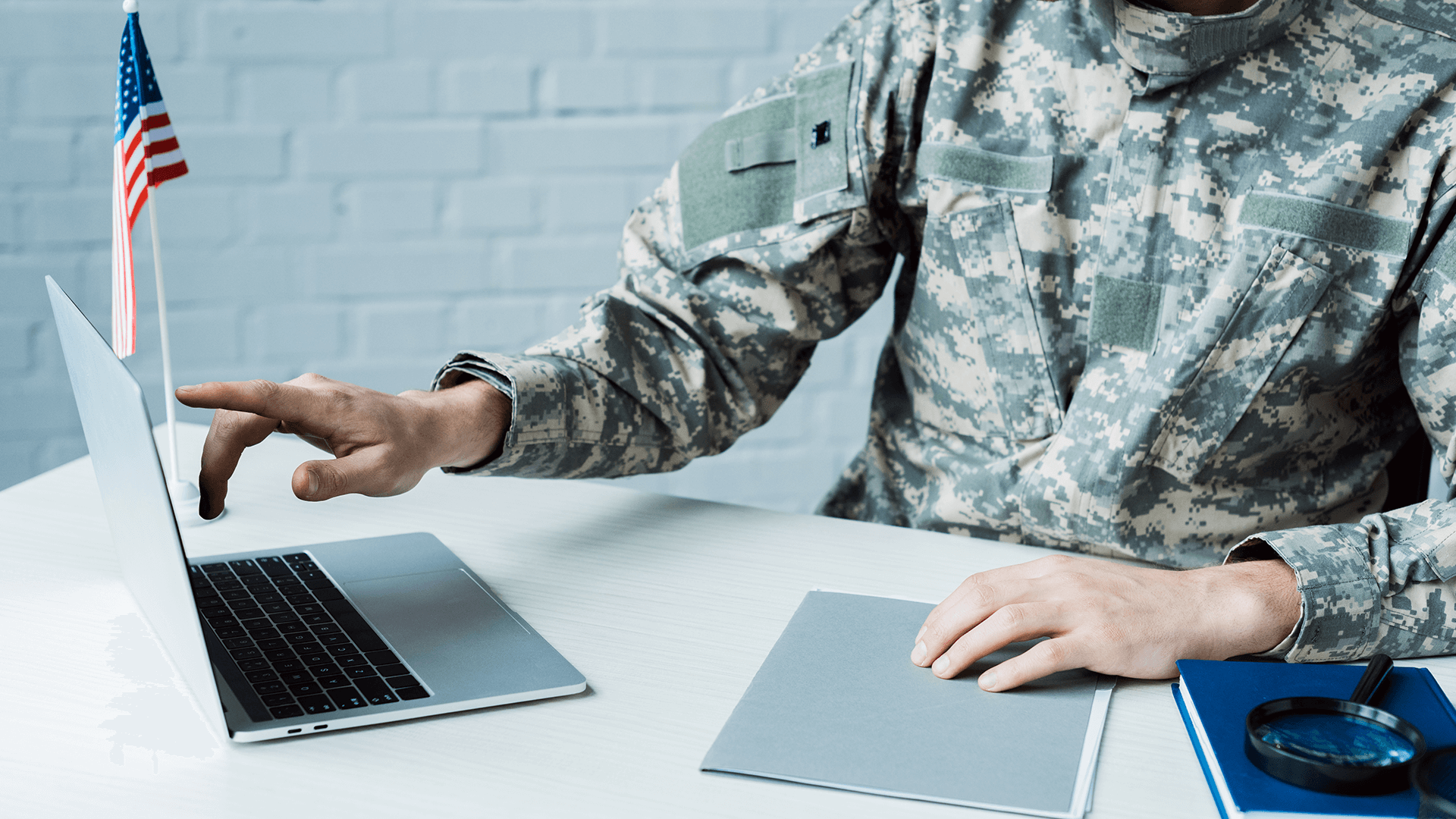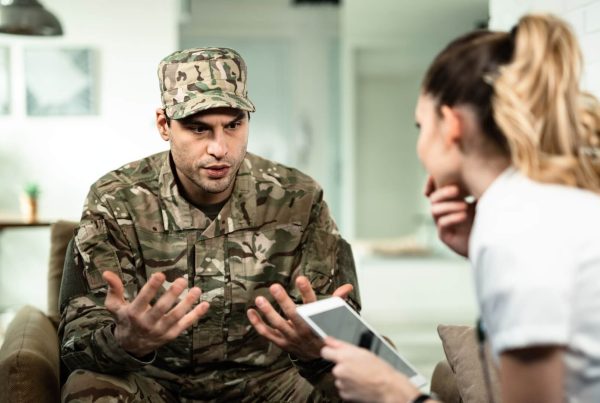Many veterans don’t realize that the VA provides additional compensation beyond the veteran’s standard monthly disability payment. Veterans with severe, specific disabilities may qualify for Special Monthly Compensation (SMC), which significantly increases the veteran’s monthly VA disability benefits. A veteran might receive SMC without even knowing the veteran qualifies. This article explains what SMC is, which veterans qualify, how much additional compensation veterans receive through SMC, and how to file for SMC benefits if the veteran hasn’t already received them.
What Is Special Monthly Compensation (SMC)?
Special Monthly Compensation is additional VA disability payment provided to veterans whose service-connected disabilities meet specific criteria related to severity and functional impact. SMC is paid in addition to a veteran’s standard disability rating compensation—it’s not a replacement or part of the veteran’s rating percentage.
The VA recognizes that certain severe disabilities cause extraordinary hardship beyond what a standard disability rating captures. A veteran who requires another person to provide daily care, a veteran who is housebound, or a veteran with specific anatomical losses (like loss of both legs or both arms) experiences disabilities so severe that additional compensation is justified.
SMC rates are significantly higher than standard disability payments. In 2025, various SMC categories provide substantially more than even a 100% rating. Some SMC categories provide $2,000-$3,500 monthly in addition to the veteran’s standard disability compensation, while the highest SMC categories can provide $4,000 or more monthly in addition to standard compensation.
Types of Special Monthly Compensation
The VA recognizes several categories of SMC, each requiring specific conditions or functional limitations:
Aid and Attendance (A&A): A veteran qualifying for SMC A&A receives additional compensation because the veteran requires assistance from another person with activities of daily living. This includes help with bathing, dressing, feeding, toileting, or other essential daily activities. A veteran with severe PTSD requiring constant supervision, a veteran with advanced dementia, a veteran requiring nursing care, or a veteran with mobility limitations requiring personal assistance all may qualify for Aid and Attendance.
Housebound (HB): SMC Housebound provides additional compensation to veterans whose service-connected disabilities confine the veteran to the veteran’s home or immediate surroundings. The veteran doesn’t need to require personal care assistance—just that the veteran’s disabilities prevent the veteran from leaving the veteran’s home except with great difficulty or hazard to health.
Loss of Use of Limbs: Veterans who have lost use of both legs, both arms, one leg and one arm, or similar combinations may qualify for SMC based on anatomical loss or loss of use. This category recognizes that bilateral limb loss causes extraordinary disability.
Blindness Combined with Deafness: A veteran who is blind and deaf qualifies for a specific SMC category recognizing the extraordinary disability caused by loss of both sight and hearing.
Loss of Use of Creative Organs: Veterans who have lost use of both hands may qualify for enhanced SMC compensation.
Inability to Secure and Retain Employment (USREC): A veteran may qualify for additional SMC if the veteran’s service-connected disabilities prevent the veteran from securing and retaining substantially gainful employment. This is similar to Individual Unemployability but provides additional SMC payment on top of standard disability compensation.
Multiple Losses: Veterans with combinations of severe losses—such as blindness combined with amputation—may qualify for even higher SMC rates.
Who Qualifies for Aid and Attendance (A&A)?
Aid and Attendance is the most commonly awarded SMC category. A veteran qualifies for SMC A&A if the veteran requires another person to help with activities of daily living due to service-connected disabilities.
Specific scenarios where veterans qualify for A&A include:
- A veteran who is blind and requires guidance in walking and orientation
- A veteran with severe mental health conditions (like PTSD) requiring supervision to ensure the veteran doesn’t harm the veteran or others
- A veteran with severe mobility limitations requiring help with dressing, bathing, and toileting
- A veteran with cognitive impairment (from TBI, dementia, or other causes) requiring assistance with daily functioning
- A veteran with spinal cord injury requiring personal care assistance
- A veteran who is unable to prepare the veteran’s own food or manage basic household tasks
The key is that the veteran requires another person’s assistance—the veteran cannot safely or independently manage essential daily activities.
Many veterans don’t realize they qualify for A&A. For example, a veteran with severe PTSD requiring constant supervision to prevent self-harm may qualify for A&A even though the veteran doesn’t have a physical disability. Similarly, a veteran with dementia or severe TBI requiring daily care assistance qualifies for A&A.
Who Qualifies for Housebound (HB)?
A veteran qualifies for SMC Housebound if service-connected disabilities confine the veteran to the veteran’s home (or immediate surroundings) substantially all the time. The veteran doesn’t need to require personal assistance—the veteran just can’t leave home due to disability severity.
A veteran with severe agoraphobia related to service-connected PTSD might qualify for Housebound. A veteran with severe mobility limitations preventing travel might qualify. A veteran with severe pain conditions limiting the veteran’s ability to leave home might qualify.
To qualify for Housebound, the veteran’s disabilities must substantially prevent the veteran from leaving home except for extraordinary circumstances. If a veteran can occasionally venture out or with special arrangements can leave home, the veteran might not meet Housebound criteria. However, if the veteran leaves home only occasionally for medical appointments or essential tasks with great difficulty, the veteran likely qualifies.
SMC Payment Amounts
SMC rates are significantly higher than standard disability compensation. In 2025, approximate SMC rates include:
Aid and Attendance (A&A): Approximately $1,400-$1,700 monthly in addition to the veteran’s standard disability payment, depending on the veteran’s specific circumstances and living situation.
Housebound (HB): Approximately $900-$1,100 monthly in addition to the veteran’s standard disability payment.
Combined A&A + another loss: Veterans with Aid and Attendance plus anatomical losses may receive even higher SMC amounts.
Highest SMC categories: Veterans with blindness combined with deafness or multiple severe losses may receive SMC payments of $3,500 or more monthly in addition to standard disability compensation.
These are approximate figures and vary by year with cost-of-living adjustments. A veteran with 100% P&T rating plus Aid and Attendance might receive total monthly compensation exceeding $5,000.
To understand your potential SMC benefits and see estimated payment amounts, use our disability calculator at https://vetvalor.com/va-disability-calculator-2025/ where you can input your disability situation and see comprehensive compensation estimates.
Filing for Special Monthly Compensation
Many veterans with qualifying disabilities don’t receive SMC simply because they don’t know to apply. SMC doesn’t happen automatically—a veteran must file specifically for SMC using VA Form 21-2680 (Application for Aid and Attendance or Housebound Benefits).
When filing for SMC, a veteran should:
Clearly describe the veteran’s service-connected disabilities and how they limit the veteran’s functioning. Explain whether the veteran requires aid and attendance, is housebound, or has other SMC-qualifying conditions. Provide medical evidence supporting the veteran’s SMC claim, including recent medical records describing the veteran’s functional limitations and care needs. Obtain statements from healthcare providers confirming that the veteran requires assistance with daily activities or is confined to the veteran’s home. If applicable, provide statements from the person providing care to the veteran describing the care the veteran receives daily. Include a detailed personal statement explaining how the veteran’s disabilities prevent the veteran from functioning independently.
Evidence Supporting SMC Claims
Building a strong SMC claim requires comprehensive evidence of severe functional limitations. The VA wants to understand specifically how the veteran’s disabilities prevent independent functioning.
Medical evidence should include:
- Records from healthcare providers treating the veteran’s service-connected conditions
- Detailed notes describing the veteran’s symptoms and functional limitations
- Statements from primary care physicians or specialists confirming the veteran requires assistance
- Records of hospitalizations or institutional care related to the veteran’s disabilities
- Medication lists showing the veteran’s treatment regimen
- Documentation of any in-home nursing or care services the veteran receives
Equally important is evidence from the veteran’s personal situation:
- Statements from family members or caregivers describing daily care the veteran receives
- A detailed account from the veteran describing a typical day and the veteran’s inability to perform tasks independently
- Documentation of hiring home health aides or other care services
- Medical equipment in the veteran’s home (hospital beds, mobility devices, etc.) supporting the veteran’s functional limitations
The Difference Between Housebound and Aid and Attendance
Many veterans are confused about the difference between Housebound (HB) and Aid and Attendance (A&A). These are separate SMC categories with different requirements:
Aid and Attendance (A&A): Requires that the veteran needs another person’s help with activities of daily living. The veteran may leave home, but requires assistance with care tasks.
Housebound (HB): Requires that the veteran is confined to the veteran’s home due to disability, but doesn’t necessarily require assistance from another person. The veteran cannot leave home due to disability severity.
A veteran cannot simultaneously receive both A&A and HB—the VA will approve whichever provides greater benefit. However, a veteran should file for both and let the VA determine which applies, as the requirements differ and different veterans’ situations warrant different SMC categories.
SMC and Combined Ratings
A veteran’s SMC is separate from the veteran’s disability rating. A veteran receiving a 50% rating can still qualify for SMC if the veteran’s specific disabilities meet SMC criteria. Similarly, a veteran with a 100% P&T rating may also qualify for SMC if the veteran has additional severe disabilities warranting the extra compensation.
Use our disability calculator at https://vetvalor.com/va-disability-calculator-2025/ to understand your standard disability compensation based on your combined rating, and then add SMC payments on top of that amount if you believe you qualify.
Working With Representatives on SMC Claims
SMC claims can be complex, particularly Aid and Attendance claims requiring documentation of care needs. Many veterans benefit from working with VA-accredited representatives who understand:
- What evidence the VA needs to approve SMC claims
- How to present care documentation most effectively
- Whether a veteran qualifies for A&A, HB, or other SMC categories
- How to gather statements from caregivers and healthcare providers
A representative can significantly improve a veteran’s chances of SMC approval, particularly if the veteran’s previous claims were denied.
SMC and Aid and Attendance Fraud Concerns
The VA is aware that some individuals attempt to fraudulently claim SMC A&A benefits. To combat fraud, the VA may request in-home examinations or request detailed documentation of care provided.
Veterans should be honest and straightforward in filing for SMC. If the veteran legitimately requires care assistance, the veteran should have no concerns about providing documentation. The VA’s verification process protects both legitimate veterans and the program’s integrity.
Appealing Denied SMC Claims
If the VA denies the veteran’s SMC claim, the veteran can appeal using the same appeals process as standard disability claims. The veteran can:
- File a supplemental claim with additional evidence
- Request a higher-level review
- Appeal to the Board of Veterans’ Appeals
Many veterans successfully obtain SMC approval on appeal after initial denial, particularly when they submit additional medical evidence or work with a representative.
Planning Your SMC Benefits
If you believe you might qualify for SMC, discuss this with your healthcare providers and file for SMC even if you’re unsure whether you meet the criteria. Many veterans underestimate their functional limitations.
Use our disability calculator at https://vetvalor.com/va-disability-calculator-2025/ to model your total compensation including your combined disability rating and potential SMC benefits. Understanding your full benefit potential helps you ensure you’re receiving all the compensation you’re entitled to.
Special Monthly Compensation provides additional VA benefits to veterans with severe, specific disabilities requiring aid and attendance, causing housebound status, or involving significant anatomical losses. Many veterans qualify for SMC without realizing they do. If your service-connected disabilities prevent you from functioning independently, require daily care assistance, confine you to your home, or involve severe losses, you may qualify for SMC. File for SMC by submitting VA Form 21-2680 with comprehensive medical evidence and personal documentation of your functional limitations. Use our disability calculator at https://vetvalor.com/va-disability-calculator-2025/ to understand your potential total compensation with SMC benefits included. Your severe disabilities deserve maximum recognition and compensation through all available VA benefit programs.



